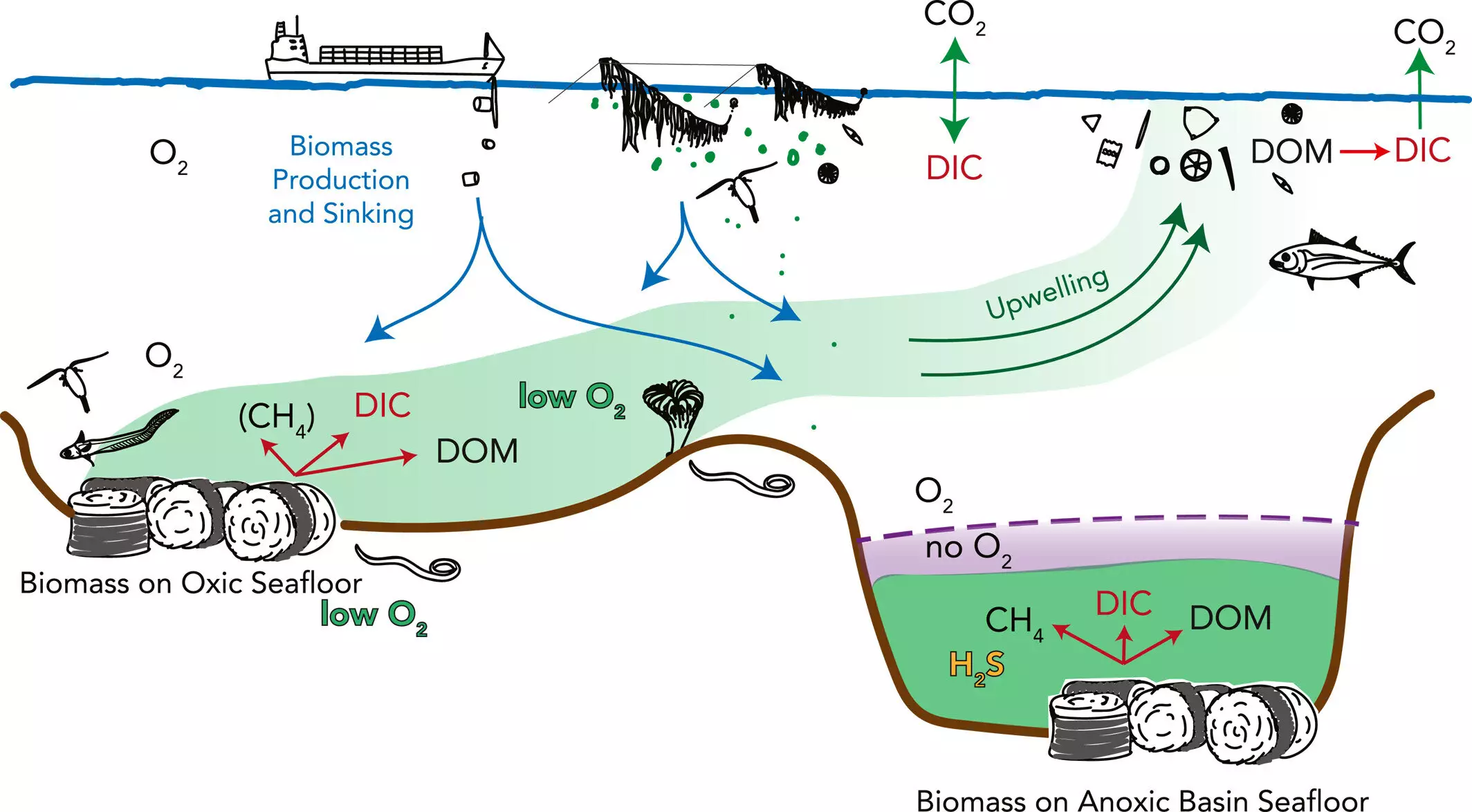In a recent study published in the journal AGU Advances, UC Santa Barbara researchers have identified anoxic marine basins as potential locations for large-scale carbon sequestration in the deep ocean. The aim is to reduce carbon levels in the atmosphere by actively storing plant biomass in oxygen-free zones on the seafloor.
Lead author Morgan Raven, a geochemist and geobiologist, emphasizes the need for net negative CO2 removal to achieve climate goals set by the International Panel on Climate Change. This involves storing carbon in a way that prevents the release of CO2 and methane into the atmosphere for hundreds or thousands of years. While the concept is not new, there are many uncertainties surrounding its implementation, particularly in terms of its impact on marine ecosystems.
Anoxic marine basins have emerged as promising candidates for carbon sequestration due to their deep and isolated nature. These basins are devoid of animal life and are primarily inhabited by microbes and specialized fungi with unique metabolisms. This environment is ideal for preserving plant matter without decomposition, effectively storing carbon for extended periods.
The researchers identified three anoxic marine basins – the Black Sea, the Cariaco Basin, and the Orca Basin – to assess their suitability for biomass storage. Of the three, the Black Sea stood out as the most favorable option due to its depth, isolation, and expanding anoxic conditions caused by human activities. Its capacity to contain biomass on a scale relevant to global climate makes it an attractive choice for carbon sequestration efforts.
Private investors have shown interest in the concept of sinking plant biomass in the deep ocean, leading to increased funding for research projects exploring deep-sea carbon sequestration. Various organizations have begun collecting biomass from sources such as seaweed and terrestrial vegetation, with each approach presenting unique benefits and challenges that require further investigation.
Raven, who advises companies involved in ocean and terrestrial plant biomass collection, believes that sinking plant biomass is a step in the right direction towards achieving carbon sequestration goals. The study on anoxic marine basins serves as a valuable contribution to the ongoing dialogue on deep ocean carbon storage.
Anoxic marine basins present a viable option for large-scale carbon sequestration in the deep ocean. By carefully selecting suitable basins and implementing responsible practices, it may be possible to effectively store carbon and mitigate the impacts of climate change. Further research and collaboration are essential to fully understand the potential of sinking plant biomass as a tool for combating global warming.


Leave a Reply